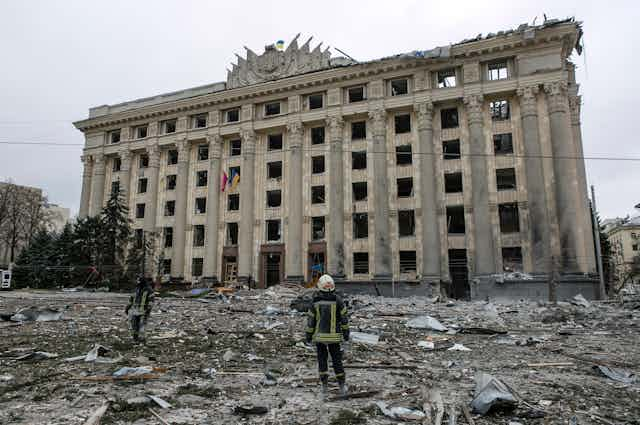As the West watches appalled at Russia’s brutal attack on Ukraine, attention is increasingly turning to the question of Vladimir Putin’s longer term ambition, and the potential for this conflagration to turn into a wider war.
Matthew Sussex, associate professor at the Griffith Asia Institute at Griffith University and an expert on Russia, believes Putin won’t want to stop at subjugating Ukraine.
“Putin himself seems absolutely personally invested in recreating the footprint at least of the USSR – certainly not its ideology, but its footprint.”
“He has for a long time said that Ukraine doesn’t deserve to exist as a state. That Ukrainians and Russians are just one people driven apart by the West.
"So he has […] achieved some of his aims already.”
“And the worry is, of course, that if Putin gets what he wants in Ukraine, then he will not stop. He will then turn his eyes to Latvia, Lithuania, Estonia – possibly even Poland will be told in a few years time that it doesn’t have the right to exist as a sovereign state.”
Read more: Putin is on a personal mission to rewrite Cold War history, making the risks in Ukraine far graver
On whether there’s a possibility of the war in Ukraine leading to a military conflict with the West, Sussex says: “Absolutely. It is potentially the case that Putin, who is a gambler, will try and up the ante by staging some kind of demonstration of strength against NATO, or perhaps even a provocation directly against NATO troops.
"Many, many wars in history have been started by accident, by overconfidence, by miscalculation. And this is why it’s a very, very dangerous time.”

